Les amenaces islamistes contra la minoria religiosa yezidi s'han acabat concretant. ISIS (Islamic State of Iraq and Sham) va exigir als 60.000 yezidi de l'Iraq que marxessin del país o serien executats. L'ultimàtum tenia 24 hores. Un 80 % dels yezidi viuen a les ciutats de Bashika i Shangal, a la zona de Mossul. Els darrers dies fins a sis yezidi han estat assassinats a mans de fonamentalistes. Això ha provocat que ja centenars de membres d'aquesta comunitat marxin de les seves cases. Unes 900 famílies així ho han fet marxant a la Regió Autònoma del Kurdistan on la influència islamista és menor. Mossul, tot i formar part del Kurdistan, va patir un greu procés d'arabització i actualment és una zona de clara majoria àrab que no forma part del Kurdistan autònom.
Arran d'aquests fets uns 2.000 yezidi van manifestar-se demanant protecció al govern autònom kurd davant les agressions islamistes. Koma Civakên Kurdistan (KCK), a vegades traduïda com a Confederació Democràtica del Kurdistan i d’altres com a Unió de Comunitats del Kurdistan, ha condemnat els atacs i s'ha ofert per defensar la comunitat yezidi.
Fotografia: BBC. Reportatge especial de la BBC sobre els Kurds Yezidi. Molt recomanable.
Yezidis
staged protests in the Kurdish town of Shangal, after four members of
the religious minority were killed by insurgents and hundreds fled their
homes in response to an ultimatum by Islamic extremists who warned
families to leave or be killed.
The protesters in Shangal, which lies in “disputed territories” claimed by both the Iraqi government and the autonomous Kurdistan Regional Government in the north, demanded protection from the KRG and the international community.
Residents said that the militants had raided a home and killed four people in front of the rest of the family. Last week, two other Yezidis were gunned down in the Rabia area.
After the latest killings, the militants issued an ultimatum calling on Yezidi families to leave the area within 24 hours or face death.
"They told us that if you don't leave by tomorrow, you would be killed," said Hamid Khalaf, the father of one of the four slain Yezidis.
Sixty thousand Yezidis are believed to live in Iraq, where 80 percent are concentrated in the towns of Bashika and Shangal. Yezidis have long faced discrimination in Iraq due to their different religious beliefs and traditions.
Nearly 4,000 Yezidi families live as farmers around the Rabia region. A Rudaw correspondent reported that some 900 families had fled their homes after the latest death threats.
Yezidis have long claimed discrimination in Iraq in matters such as employment and education. But now, with sectarian violence escalating across Iraq over the past year, the death threats have become more serious.
In sympathy with fleeing families, nearly 2,000 fellow Yezidis poured into the downtown area in protest to the killings and forced exodus. Most of the demonstrators demanded KRG protection in the face of grave threats for their safety.
"We ask the KRG and its president, Massoud Barzani, to assist us in preventing the killings," one protester pleaded in Shangal.
"We ask the central government and the KRG to come to protect us,” said another protester. “They (the militants) killed four Yezidis for no reason. Yezidis are human beings, too. Why are they killing Yezidis?"
The 2003 US-led invasion unleashed a Pandora’s box of ethnic and religious rivalries, including attacks against the minority Yezidis, who are considered “devil worshippers” by extremist Muslims. In one attack in 2007, gunmen massacred 23 Yezidis near Mosul, triggering an exodus of hundreds of families to the Kurdistan Region, the only peaceful portion of Iraq.
- See more at: http://rudaw.net/english/middleeast/iraq/10052014#sthash.S7ueUbCe.dpuf
The protesters in Shangal, which lies in “disputed territories” claimed by both the Iraqi government and the autonomous Kurdistan Regional Government in the north, demanded protection from the KRG and the international community.
Residents said that the militants had raided a home and killed four people in front of the rest of the family. Last week, two other Yezidis were gunned down in the Rabia area.
After the latest killings, the militants issued an ultimatum calling on Yezidi families to leave the area within 24 hours or face death.
"They told us that if you don't leave by tomorrow, you would be killed," said Hamid Khalaf, the father of one of the four slain Yezidis.
Sixty thousand Yezidis are believed to live in Iraq, where 80 percent are concentrated in the towns of Bashika and Shangal. Yezidis have long faced discrimination in Iraq due to their different religious beliefs and traditions.
Nearly 4,000 Yezidi families live as farmers around the Rabia region. A Rudaw correspondent reported that some 900 families had fled their homes after the latest death threats.
Yezidis have long claimed discrimination in Iraq in matters such as employment and education. But now, with sectarian violence escalating across Iraq over the past year, the death threats have become more serious.
In sympathy with fleeing families, nearly 2,000 fellow Yezidis poured into the downtown area in protest to the killings and forced exodus. Most of the demonstrators demanded KRG protection in the face of grave threats for their safety.
"We ask the KRG and its president, Massoud Barzani, to assist us in preventing the killings," one protester pleaded in Shangal.
"We ask the central government and the KRG to come to protect us,” said another protester. “They (the militants) killed four Yezidis for no reason. Yezidis are human beings, too. Why are they killing Yezidis?"
The 2003 US-led invasion unleashed a Pandora’s box of ethnic and religious rivalries, including attacks against the minority Yezidis, who are considered “devil worshippers” by extremist Muslims. In one attack in 2007, gunmen massacred 23 Yezidis near Mosul, triggering an exodus of hundreds of families to the Kurdistan Region, the only peaceful portion of Iraq.
- See more at: http://rudaw.net/english/middleeast/iraq/10052014#sthash.S7ueUbCe.dpuf
Yezidis
staged protests in the Kurdish town of Shangal, after four members of
the religious minority were killed by insurgents and hundreds fled their
homes in response to an ultimatum by Islamic extremists who warned
families to leave or be killed.
The protesters in Shangal, which lies in “disputed territories” claimed by both the Iraqi government and the autonomous Kurdistan Regional Government in the north, demanded protection from the KRG and the international community.
Residents said that the militants had raided a home and killed four people in front of the rest of the family. Last week, two other Yezidis were gunned down in the Rabia area.
After the latest killings, the militants issued an ultimatum calling on Yezidi families to leave the area within 24 hours or face death.
"They told us that if you don't leave by tomorrow, you would be killed," said Hamid Khalaf, the father of one of the four slain Yezidis.
Sixty thousand Yezidis are believed to live in Iraq, where 80 percent are concentrated in the towns of Bashika and Shangal. Yezidis have long faced discrimination in Iraq due to their different religious beliefs and traditions.
Nearly 4,000 Yezidi families live as farmers around the Rabia region. A Rudaw correspondent reported that some 900 families had fled their homes after the latest death threats.
Yezidis have long claimed discrimination in Iraq in matters such as employment and education. But now, with sectarian violence escalating across Iraq over the past year, the death threats have become more serious.
In sympathy with fleeing families, nearly 2,000 fellow Yezidis poured into the downtown area in protest to the killings and forced exodus. Most of the demonstrators demanded KRG protection in the face of grave threats for their safety.
"We ask the KRG and its president, Massoud Barzani, to assist us in preventing the killings," one protester pleaded in Shangal.
"We ask the central government and the KRG to come to protect us,” said another protester. “They (the militants) killed four Yezidis for no reason. Yezidis are human beings, too. Why are they killing Yezidis?"
The 2003 US-led invasion unleashed a Pandora’s box of ethnic and religious rivalries, including attacks against the minority Yezidis, who are considered “devil worshippers” by extremist Muslims. In one attack in 2007, gunmen massacred 23 Yezidis near Mosul, triggering an exodus of hundreds of families to the Kurdistan Region, the only peaceful portion of Iraq.
A woman leaving Rabia with her family told Rudaw that the militants had branded them as "Christians and infidels."
In the meantime, some families from other areas of Nineveh risked their lives by going to assist their relatives in Rabia.
"We are going to bring our families, and we are compelled to carry guns with us to defend ourselves,” said Sleman Mahmoud, a truck driver who was on his way to Rabia to pick up frightened relatives. - See more at: http://rudaw.net/english/middleeast/iraq/10052014#sthash.S7ueUbCe.dpuf
The protesters in Shangal, which lies in “disputed territories” claimed by both the Iraqi government and the autonomous Kurdistan Regional Government in the north, demanded protection from the KRG and the international community.
Residents said that the militants had raided a home and killed four people in front of the rest of the family. Last week, two other Yezidis were gunned down in the Rabia area.
After the latest killings, the militants issued an ultimatum calling on Yezidi families to leave the area within 24 hours or face death.
"They told us that if you don't leave by tomorrow, you would be killed," said Hamid Khalaf, the father of one of the four slain Yezidis.
Sixty thousand Yezidis are believed to live in Iraq, where 80 percent are concentrated in the towns of Bashika and Shangal. Yezidis have long faced discrimination in Iraq due to their different religious beliefs and traditions.
Nearly 4,000 Yezidi families live as farmers around the Rabia region. A Rudaw correspondent reported that some 900 families had fled their homes after the latest death threats.
Yezidis have long claimed discrimination in Iraq in matters such as employment and education. But now, with sectarian violence escalating across Iraq over the past year, the death threats have become more serious.
In sympathy with fleeing families, nearly 2,000 fellow Yezidis poured into the downtown area in protest to the killings and forced exodus. Most of the demonstrators demanded KRG protection in the face of grave threats for their safety.
"We ask the KRG and its president, Massoud Barzani, to assist us in preventing the killings," one protester pleaded in Shangal.
"We ask the central government and the KRG to come to protect us,” said another protester. “They (the militants) killed four Yezidis for no reason. Yezidis are human beings, too. Why are they killing Yezidis?"
The 2003 US-led invasion unleashed a Pandora’s box of ethnic and religious rivalries, including attacks against the minority Yezidis, who are considered “devil worshippers” by extremist Muslims. In one attack in 2007, gunmen massacred 23 Yezidis near Mosul, triggering an exodus of hundreds of families to the Kurdistan Region, the only peaceful portion of Iraq.
A woman leaving Rabia with her family told Rudaw that the militants had branded them as "Christians and infidels."
In the meantime, some families from other areas of Nineveh risked their lives by going to assist their relatives in Rabia.
"We are going to bring our families, and we are compelled to carry guns with us to defend ourselves,” said Sleman Mahmoud, a truck driver who was on his way to Rabia to pick up frightened relatives. - See more at: http://rudaw.net/english/middleeast/iraq/10052014#sthash.S7ueUbCe.dpuf
Yezidis
staged protests in the Kurdish town of Shangal, after four members of
the religious minority were killed by insurgents and hundreds fled their
homes in response to an ultimatum by Islamic extremists who warned
families to leave or be killed.
The protesters in Shangal, which lies in “disputed territories” claimed by both the Iraqi government and the autonomous Kurdistan Regional Government in the north, demanded protection from the KRG and the international community.
Residents said that the militants had raided a home and killed four people in front of the rest of the family. Last week, two other Yezidis were gunned down in the Rabia area.
After the latest killings, the militants issued an ultimatum calling on Yezidi families to leave the area within 24 hours or face death.
"They told us that if you don't leave by tomorrow, you would be killed," said Hamid Khalaf, the father of one of the four slain Yezidis.
Sixty thousand Yezidis are believed to live in Iraq, where 80 percent are concentrated in the towns of Bashika and Shangal. Yezidis have long faced discrimination in Iraq due to their different religious beliefs and traditions.
Nearly 4,000 Yezidi families live as farmers around the Rabia region. A Rudaw correspondent reported that some 900 families had fled their homes after the latest death threats.
Yezidis have long claimed discrimination in Iraq in matters such as employment and education. But now, with sectarian violence escalating across Iraq over the past year, the death threats have become more serious.
In sympathy with fleeing families, nearly 2,000 fellow Yezidis poured into the downtown area in protest to the killings and forced exodus. Most of the demonstrators demanded KRG protection in the face of grave threats for their safety.
"We ask the KRG and its president, Massoud Barzani, to assist us in preventing the killings," one protester pleaded in Shangal.
"We ask the central government and the KRG to come to protect us,” said another protester. “They (the militants) killed four Yezidis for no reason. Yezidis are human beings, too. Why are they killing Yezidis?"
The 2003 US-led invasion unleashed a Pandora’s box of ethnic and religious rivalries, including attacks against the minority Yezidis, who are considered “devil worshippers” by extremist Muslims. In one attack in 2007, gunmen massacred 23 Yezidis near Mosul, triggering an exodus of hundreds of families to the Kurdistan Region, the only peaceful portion of Iraq.
A woman leaving Rabia with her family told Rudaw that the militants had branded them as "Christians and infidels."
In the meantime, some families from other areas of Nineveh risked their lives by going to assist their relatives in Rabia.
"We are going to bring our families, and we are compelled to carry guns with us to defend ourselves,” said Sleman Mahmoud, a truck driver who was on his way to Rabia to pick up frightened relatives. - See more at: http://rudaw.net/english/middleeast/iraq/10052014#sthash.S7ueUbCe.dpuf
The protesters in Shangal, which lies in “disputed territories” claimed by both the Iraqi government and the autonomous Kurdistan Regional Government in the north, demanded protection from the KRG and the international community.
Residents said that the militants had raided a home and killed four people in front of the rest of the family. Last week, two other Yezidis were gunned down in the Rabia area.
After the latest killings, the militants issued an ultimatum calling on Yezidi families to leave the area within 24 hours or face death.
"They told us that if you don't leave by tomorrow, you would be killed," said Hamid Khalaf, the father of one of the four slain Yezidis.
Sixty thousand Yezidis are believed to live in Iraq, where 80 percent are concentrated in the towns of Bashika and Shangal. Yezidis have long faced discrimination in Iraq due to their different religious beliefs and traditions.
Nearly 4,000 Yezidi families live as farmers around the Rabia region. A Rudaw correspondent reported that some 900 families had fled their homes after the latest death threats.
Yezidis have long claimed discrimination in Iraq in matters such as employment and education. But now, with sectarian violence escalating across Iraq over the past year, the death threats have become more serious.
In sympathy with fleeing families, nearly 2,000 fellow Yezidis poured into the downtown area in protest to the killings and forced exodus. Most of the demonstrators demanded KRG protection in the face of grave threats for their safety.
"We ask the KRG and its president, Massoud Barzani, to assist us in preventing the killings," one protester pleaded in Shangal.
"We ask the central government and the KRG to come to protect us,” said another protester. “They (the militants) killed four Yezidis for no reason. Yezidis are human beings, too. Why are they killing Yezidis?"
The 2003 US-led invasion unleashed a Pandora’s box of ethnic and religious rivalries, including attacks against the minority Yezidis, who are considered “devil worshippers” by extremist Muslims. In one attack in 2007, gunmen massacred 23 Yezidis near Mosul, triggering an exodus of hundreds of families to the Kurdistan Region, the only peaceful portion of Iraq.
A woman leaving Rabia with her family told Rudaw that the militants had branded them as "Christians and infidels."
In the meantime, some families from other areas of Nineveh risked their lives by going to assist their relatives in Rabia.
"We are going to bring our families, and we are compelled to carry guns with us to defend ourselves,” said Sleman Mahmoud, a truck driver who was on his way to Rabia to pick up frightened relatives. - See more at: http://rudaw.net/english/middleeast/iraq/10052014#sthash.S7ueUbCe.dpuf



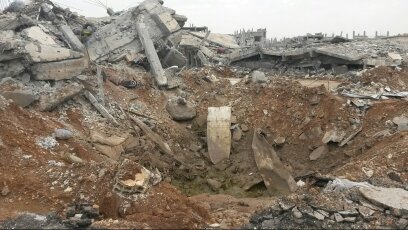







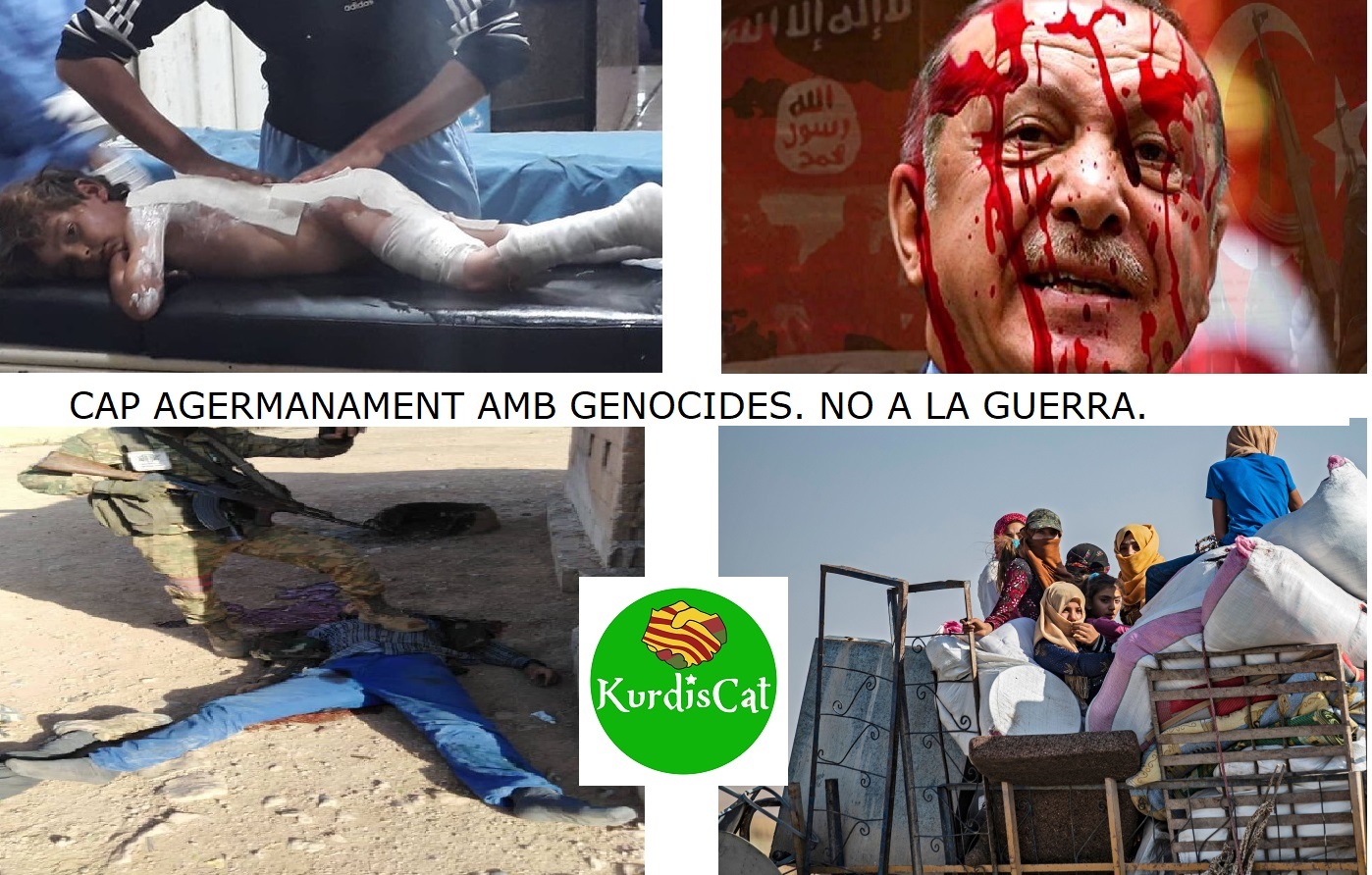

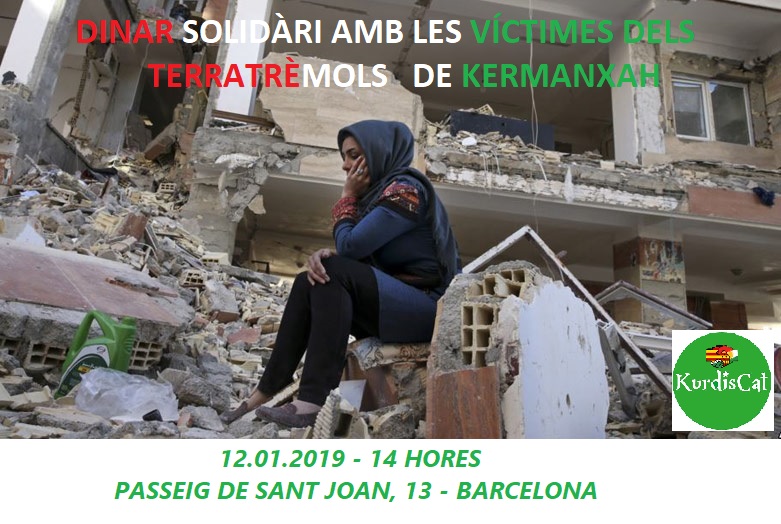
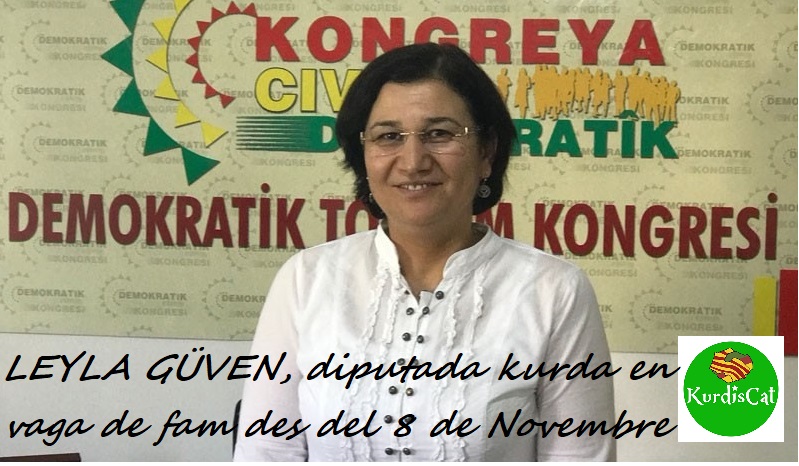




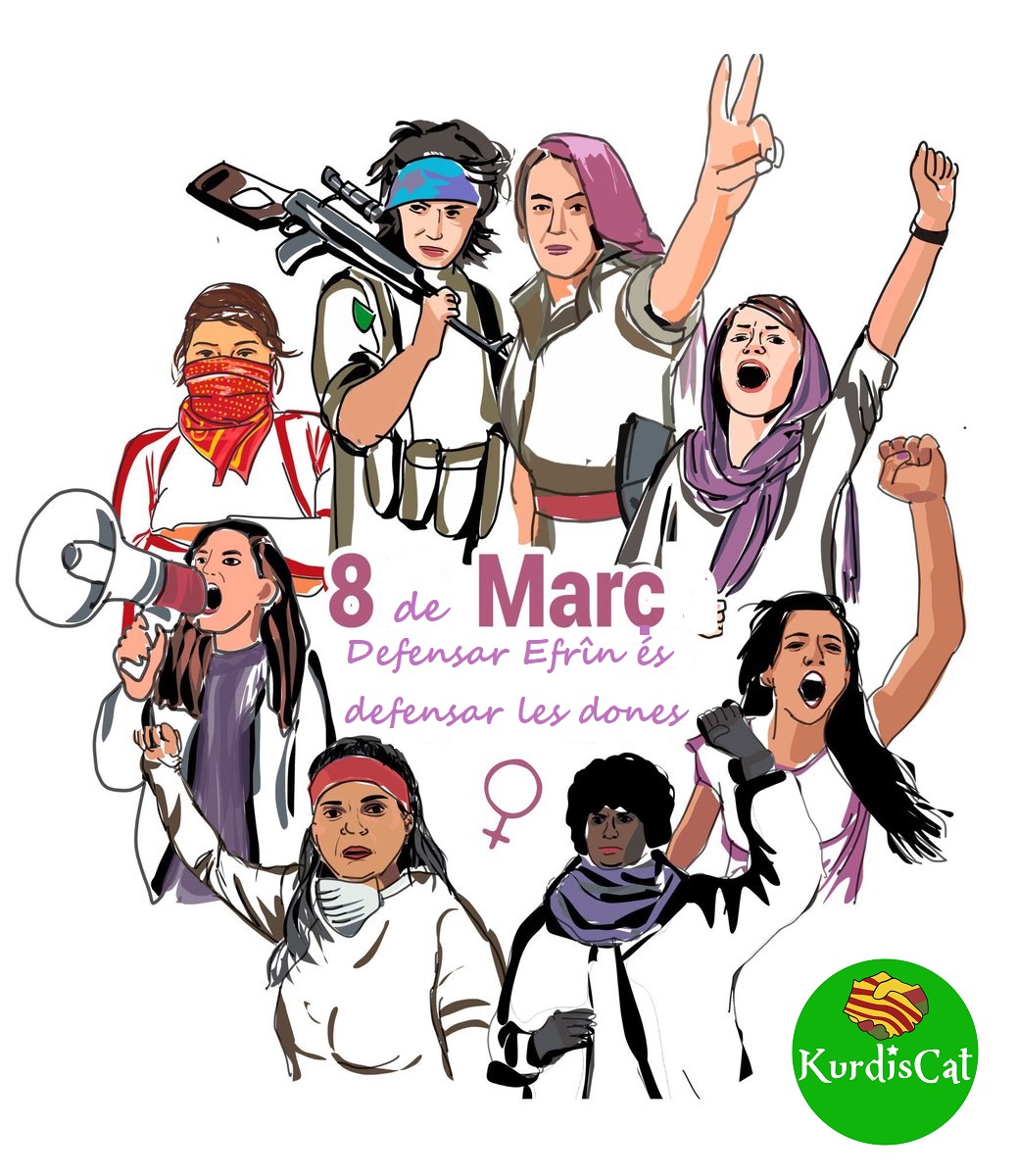


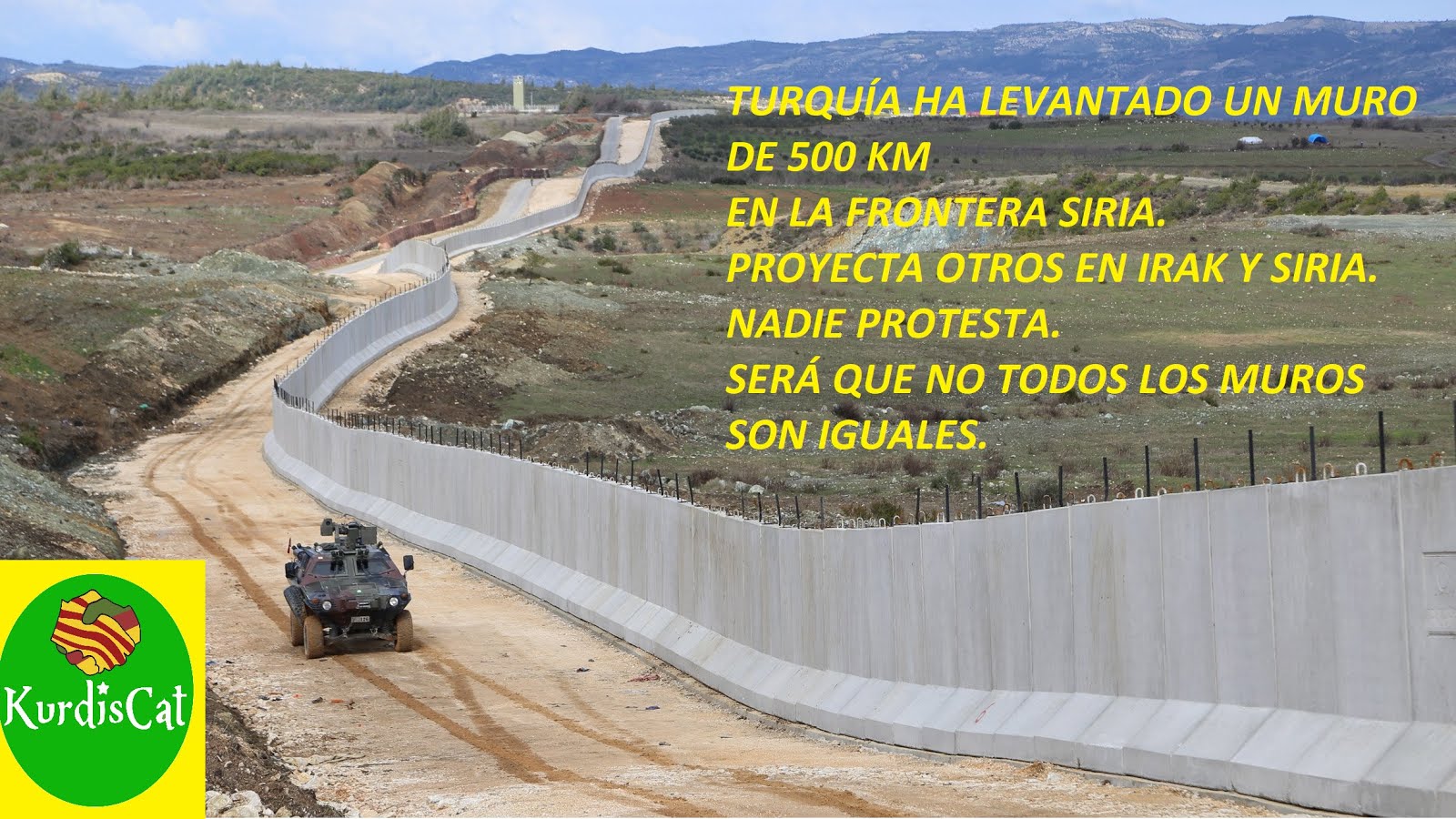
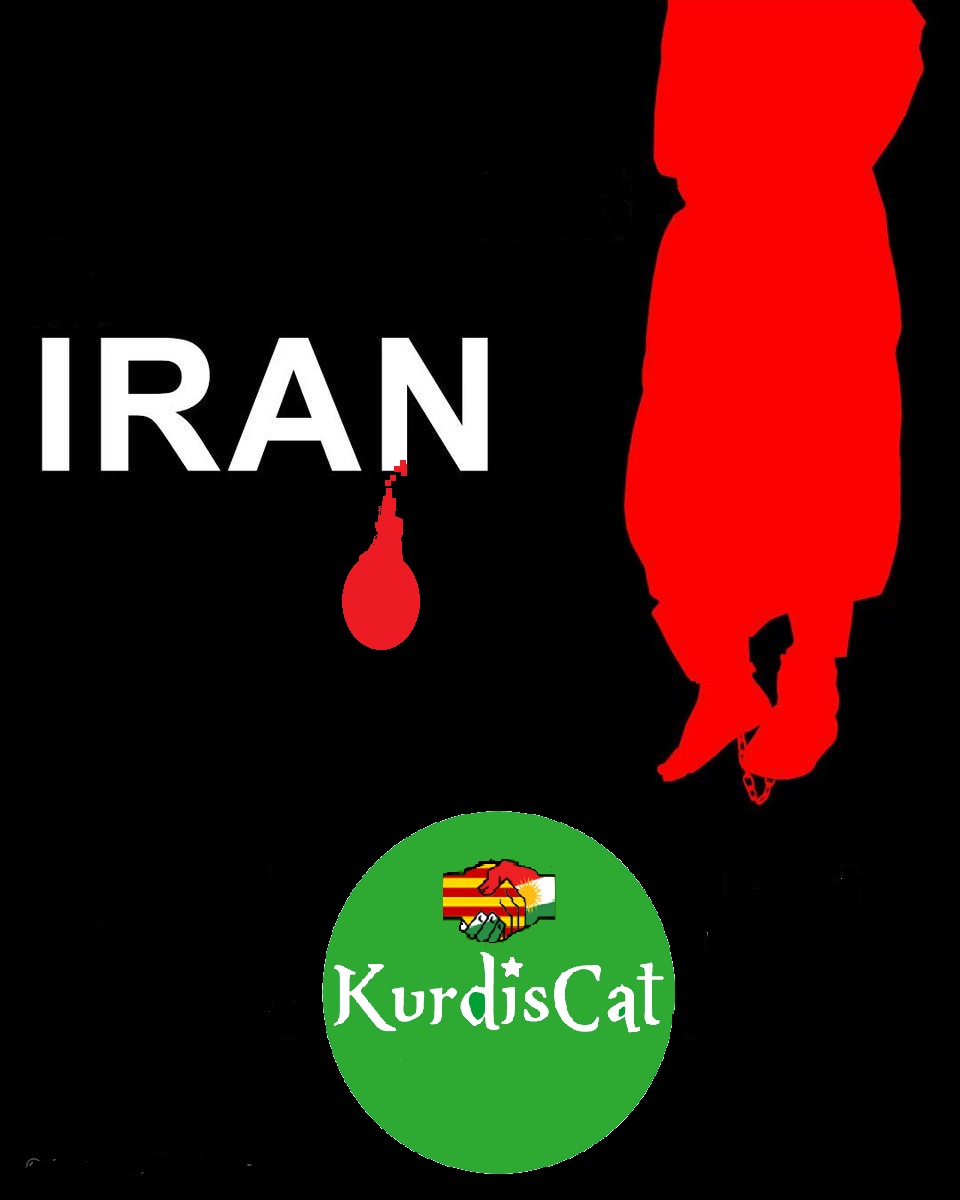

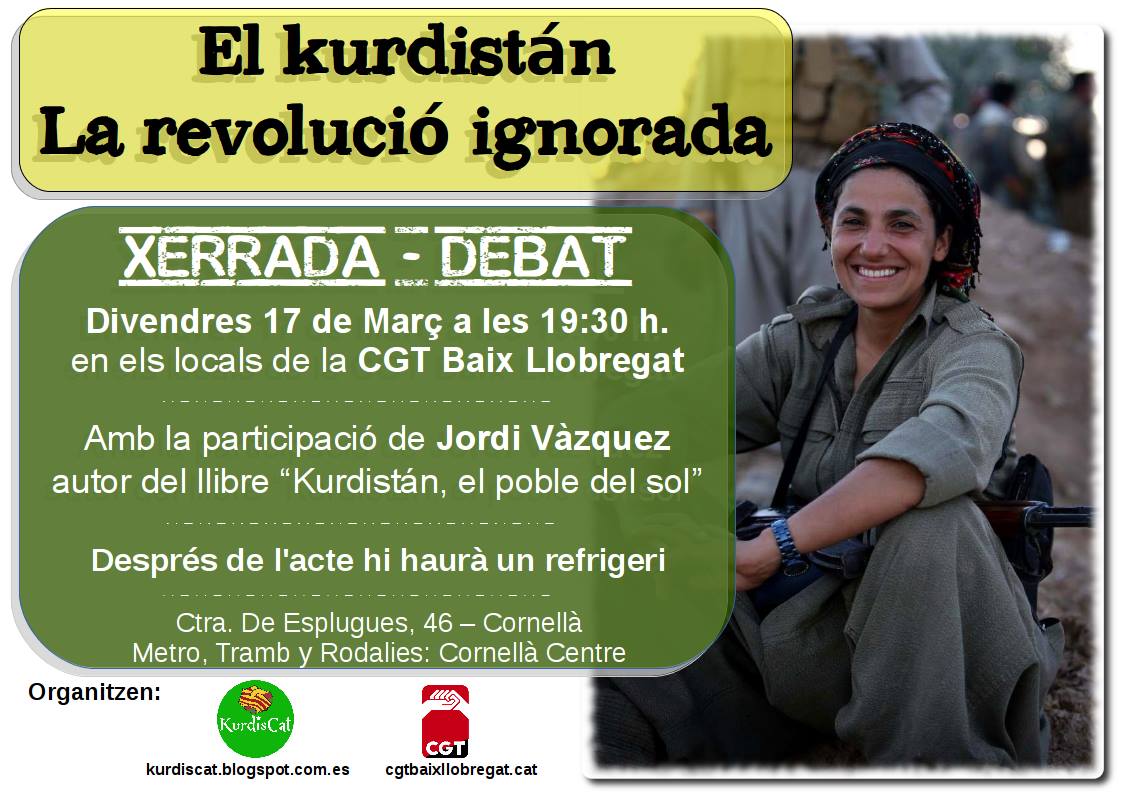












0 comentaris:
Publica un comentari a l'entrada